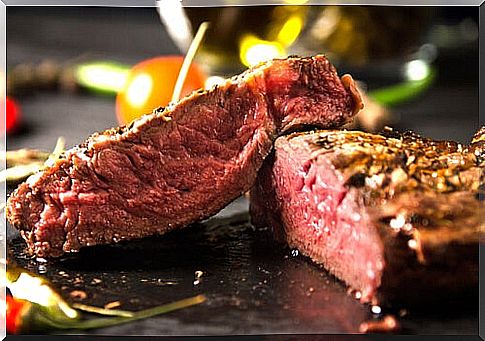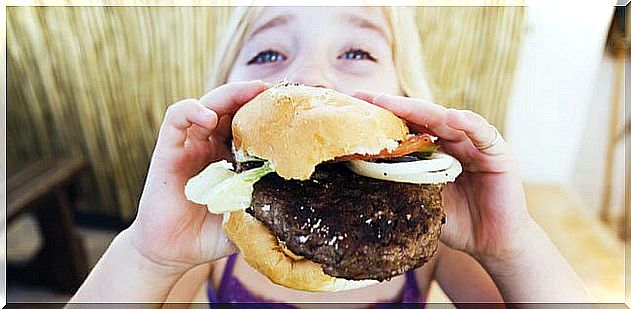The Danger Of Excess Protein In Children

Proteins participate in various functions of the body and that allow us to maintain good health. Thus, some act as bioregulators, others are responsible for supporting the various structures of the body and others are the antibodies used by the immune system to protect itself from diseases.
They can be found in products of both animal and plant origin. Meats, eggs, milk, yogurt, cheese, cereals, legumes and nuts. Therefore, they can be used in all kinds of recipes, in different combinations, in the different meals that are made throughout the day.
Taking advantage of the contribution of proteins in the daily diet is not only very beneficial to have a good energy level, but to keep the body functioning optimally. However, do not indulge in excesses. Both consuming protein in excess and having a deficiency of them have consequences for health.
Main difficulties of excess protein during childhood

Previously it was believed that children should be required to eat the meat on their plate before any other food. For this reason, many times they fell into excess and a balance was not maintained between the different food groups.
1. Predisposition to be overweight
Excess protein in the diet predisposes to overweight, both in childhood and in adulthood. Well, when the amount of protein that enters the body is higher than it needs, the excess begins to be stored in the form of fat.
This fat is what forms and makes adiposites (cells that form adipose tissue) grow so that when the body needs that accumulated energy it can make use of it. But the excessive increase in adiposity (both in number and size) leads to obesity.
As if the “bad” were not enough, it must be remembered that what is eaten in childhood predisposes the body to suffer diseases in adulthood. However, as long as protein intake and use are in balance, there will be no downsides.
2. Acidification of the blood

Excess protein in the body has another effect that is not beneficial at all: acidification of the blood. As a result of this and in order to return its pH (a measure that evaluates the acidity) to the blood, the bones release part of their calcium.
Bones have several functions within the human body, among them, they fulfill metabolic functions. You should know that bones are the most important mineral reserves such as phosphorus and calcium in the body; and that they are also responsible for regulating the pH of the blood.
When excess protein acidifies the blood, the bones release calcium into the bloodstream to dampen this effect. Calcium that they need so much, especially in childhood, to stay healthy and grow.
On the other hand, when the excess protein that enters the body through the diet is of animal origin, it brings about an increase in cholesterol in the blood, increases the chances that, in the future, cardiovascular diseases will develop and overloads the functioning of the kidneys and liver.
How to avoid excess protein in children?
Do not forget that there are proteins in products of plant origin and dairy derivatives that can be used in many ways. Therefore, it is valid to resort to cheese, yogurt, peas, beans, lentils, nuts (if your child is older and can eat them naturally, without danger of choking), among other foods.

In short, to prevent all health problems, it is best to maintain healthy habits at home. When in doubt, you can consult your doctor or nutritionist about the best plans for each stage and also to know what foods to introduce, in what quantities and, of course, their various combinations.










